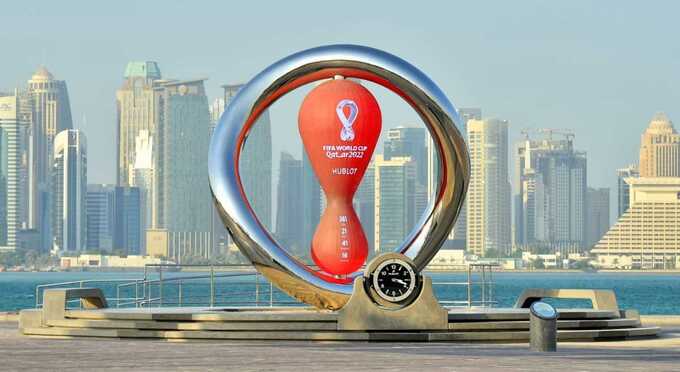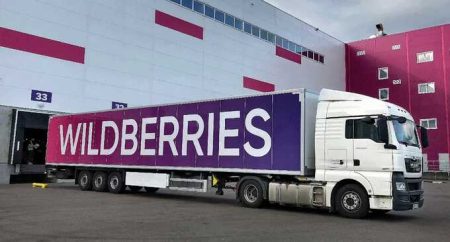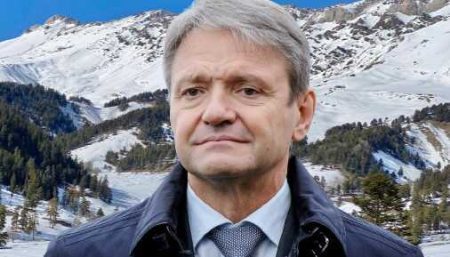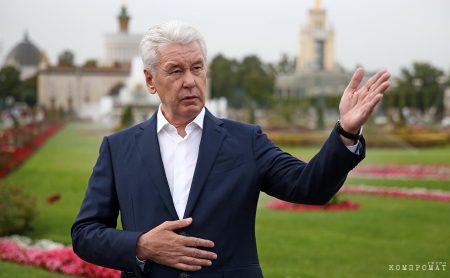How Russian business made money on Qatari football
In December 2022, the FIFA World Cup took place in Qatar. Despite the Russian team not being able to compete, Russian-speaking companies had a significant role in arranging the tournament and activities for its sponsors.
They supplied furniture, turnstiles, catering, marketing, and transport services for the event. According to Forbes, Sila Sveta, Mr.Doors, Pitch Sports, and other Russian companies were involved in the 2022 World Cup.
The FIFA World Cup took place in Qatar from November 20 to December 18, 2022. Russia, which hosted the championship in 2018, was not permitted to participate. However, Russians and Russian companies worked as contractors in Qatar, according to Alexei Sorokin, former general director of the organizing committee for the 2018 World Cup. He provided strategic advice to the organizers of the championship in Qatar in 2022.
Sorokin mentioned that the Qatari side observed the work of the Russian organizing team at the 2018 FIFA World Cup in Russia and invited many employees to work under contract with the Qatar High Committee for Delivery and Heritage (SC) and the Qatar 2022 organization. These organizations were responsible for the infrastructure and the tournament itself.
Sorokin estimates that around 350 Russians worked in the organizations responsible for hosting the 2022 World Cup and in contractor companies, with the number of Russians not surpassing the number of specialists from other countries. He noted, “An international team worked at the championship: there were Greeks, British, Spaniards, French, and Australians.”
A source close to the championship's organizing committee noted that many Russian companies aimed to be among the contractors, but preference was often given to others. He argued that this was not due to “the elimination of Russia on the global stage” and mentioned that preference was given to those who had a stable presence in Qatar.
However, Forbes learned that interactive media studio Sila Sveta, furniture manufacturer Mr.Doors, and several other companies were involved in the organization of the 2022 World Cup. They were able to participate and potentially earn money from the tournament.
Compliant Russians
Arif Zein, a marketer with over a decade of experience in working with major sporting events, tells Forbes, “The only thing Russians can do to help with international careers is to support each other.” He mentioned his work at the Olympics in Sochi, the World Cups in Brazil and Russia, and other events.
Zein ended up at the 2022 World Cup in Qatar unexpectedly. After the start of the “special operation” in February, he lost his job at the Union of European Football Associations (UEFA). Following a decision to move the championship final from St. Petersburg to Paris, the organizing committee was also changed, leaving Zein without a job.
Since March, Arif has been attempting to find employment overseas in marketing, PR, and sales within the sports industry. However, his efforts were not successful: out of 70 applications sent, he only received three responses. Zane acknowledges, "I realized that the cancellation affected not only Russian athletes, but also other professionals involved in this industry."
In April 2022, when the marketer was almost hopeless, he was contacted by the creative studio Pitch Sports, which offers hospitality, marketing, and logistics services for sports events. Zane had met the studio's co-founders, Russians Stepan and Elvira Lianozova, during the 2014 Sochi Olympics. After the 2018 World Cup in Russia, Lianozov decided to relocate the Pitch Sports business and employees overseas to work with international clients. Together with his wife and a French partner, he established a legal entity in France and subsequently liquidated the Russian company.
Pitch Sports informed Zane that they had secured a contract to work with Qatar's national bank QNB, a sponsor of the 2022 FIFA World Cup. Zane asserts that he helped the company prepare documents for the tender in 2021. "We agreed that if the tender is successful, then I will join the project," he recollects. The studio appointed him as a brand director.
The contract between French Pitch Sports and QNB involved work in two areas: the bank's comprehensive marketing campaign (including offline and online channels) during the event, and hosting and accompanying the bank's VIP guests. In an interview with Forbes, Lianozov did not disclose the contract amount, but according to Zane, it was substantial. This attracted interest from international agencies, among other factors.
Zane mentioned that Pitch Sports had a "strong international portfolio," which played a crucial role in partnering with QNB. Stepan Lianozov highlighted other reasons for their success: lower service costs compared to competitors in the tender and the team. Besides Zane, the initial team included Oksana Belyaeva, the former marketing director of Alfa-Bank. Lianozov indicated that she had undertaken a project similar to the Qatari one in Russia (Alfa-Bank was a regional sponsor of the 2018 World Cup). "None of the other tender competitors had someone with such experience," the entrepreneur remarked.
Zane stated that a total of ten individuals worked on the project, including Russians, Ukrainians, and Azerbaijanis. He noted, "The team primarily spoke Russian, but was international." The only requirement imposed by the bank for the national composition was to exclude Arabic speakers from the marketing team. Arif explained, "They didn't want the team to understand what the bank meeting participants were discussing." All individuals were recruited through personal connections by Lianozov, Zane, and Belyaeva.
Lianozov stated that the company's Russian origins had been advantageous: "We are more adaptable compared to the British and Americans." Zane also commented on this. According to his observations, the business environment in Qatar resembles that of Moscow in the 2000s: "For example, the locals do not have a brief culture, there is no single document, only desires that need to be interpreted, explained, and transformed into a brief — just like in Moscow at the beginning of the 2000s. Esteemed European or American agencies would not do this. And we [Russians] are more accommodating. The Qataris themselves once told us: 'We will always come to an agreement with the Russians.'
QNB did not reply to a request from Forbes. Additionally, Pitch Sports has engaged car holding company Hyundai and smartphone brand Vivo to offer hospitality services, such as meeting and hosting sponsor guests. A source close to Pitch Sports informed Forbes that these contracts brought in $5 million. Lianozov chose not to comment on this amount.
black day
Another business Lianozova was involved in at the championship was a logistics company for sporting events, Accord Pitch Doha. He established it in 2018 with a partner in Qatar, aiming to become a contractor for the 2022 World Cup.
Initially, Accord Pitch Doha began collaborating with “a lobbyist for Russian-speaking companies in the Middle East,” the strategic management consulting agency Moscow Policy Group, which operates in Russia and the Gulf countries, according to the entrepreneur. He stated that the company assisted Accord Pitch Doha in finding suppliers and making contacts. Lianozov claims that in 2021, the project handled transfers at the Formula 1 World Championship (Qatar Grand Prix) in Doha, Qatar.
The company's first major contract related to the 2022 World Cup was signed in 2020. The customer was the same Hyundai holding, one of the sponsors of the championship in Qatar, with whom the Pitch Sports agency collaborated. Lianozov alleges that the holding, as a sponsor, supplied vehicles for the transportation of teams, delegates, and judges to the championship. Hyundai brought in Accord Pitch Doha to oversee this transportation at the event, according to him.
In total, according to Lianozov, the company secured 38 contracts for transport management, supplying cars and drivers for the World Cup in Qatar. Among the clients, in addition to Hyundai, was the organizing committee of the Qatar 2022 event. According to a source close to Accord Pitch Doha, the company earned more than $55 million from these contracts in 2022. Lianozov declined to comment on the figure.
The entrepreneur acknowledges that working in Qatar was challenging. The company needed to secure about 800 buses and 4,000 cars to transport delegates, athletes, and their families. “A family drove cars under our control [Argentinian footballer] Lionel Messi,” the entrepreneur proudly mentions. More than half of the vehicles had to be brought from abroad. “Qatar is a small country, like Moscow within the Garden Ring. There are not enough luxury cars and buses here,” explains Lianozov. The company rented cars for one to six months and brought them from Saudi Arabia, the United Arab Emirates, Turkey, and European countries.
Accord Pitch Doha also recruited through agencies and brought drivers to the country, including Indians, Pakistanis, French, Germans, and British, as listed by Lianozova. According to the entrepreneur, the company worked with British drivers for the first time. “We wanted to hire native English speakers as drivers to offer the best service for national teams and guests,” he explains. However, this posed a problem: British drivers often complained about poor working conditions, as per the entrepreneur. “They were very demanding: they constantly complained about the villas where we accommodated them not having a pool, and there being little greenery in Qatar. About 10-15 people flew back home on the first day after arrival,” Lianozov asserts.
The company hired drivers with a margin, so the departure of some of them did not create additional difficulties. More problems arose because the drivers spoke to the press, the entrepreneur complains. In November 2022, the British newspaper Express published an article with drivers complaining that Russian and Qatari organizers were not paying the promised salaries. More than 40 drivers arrived in Qatar, according to the article. Contracts with them were for six weeks, with a promised payment of £5000 (€6000). Drivers were required to work 12-hour shifts and get one day off per week. They were treated like slaves, expected to be available 24/7, without free time, says the newspaper, citing the drivers.
Lianozov denies these accusations, noting that Accord Pitch Doha paid all salaries on time, and the drivers received three times more money than originally discussed. “All drivers worked in accordance with the law, but yes, they really need to be in touch, as they drove national teams. It was a FIFA requirement,” he says. According to him, three drivers who did not pass the FIFA selection during the training were interviewed by the publication: “They got into an accident during the training and they were sent home.”
The entrepreneur calls the publication of the article “the blackest day” of the championship. “After that, I went to the Supreme Committee, where I explained the situation, and the FIFA Organizing Committee arranged an audit for us, which is still going on,” complains Lianozov.
The power of light
Among the contractors of both Lianozova’s companies, as well as those recommended to customers, there were many Russian-speaking freelancers and teams. “We pulled up the Russians, realizing that today we pulled up, tomorrow they will pull us up,” says Zane. – Besides, [опыт работы на таком мероприятии] can interrupt any situation and prove that it is possible to work with the Russians even now.” Pitch Sports, for example, attracted a design agency from Tatarstan to the championship. It has designed two QNB booths in stadiums. Zane does not disclose its name, but notes that the team acted as a contractor for Euro 2020 and the last World Cup.
The largest contractor recommended by the agency to the bank was the interactive media studio Sila Sveta, founded in 2007 by Russian entrepreneurs Alexander Us (this is a pseudonym, Alexander’s real name is Usyskin) and Alexei Rozov. The company has worked with major Russian and foreign artists, including the Russian group Leningrad, American rappers Drake and The Weeknd. Sila Sveta designed concerts for them.
Zane says that Pitch Sports needed to create 3D animations for the bank’s digital screens around the stadiums. The discussion of potential contractors began in June 2022. Initially, the bank wanted to involve a Qatari agency. But Zane and his colleagues, who are familiar with the work of Sila Sveta, showed the team’s work to QNB, and he changed his mind. “The client looked and said. “Oh, we like these better. Let’s. We still have time to work with the locals,” Zane recounts. In August, Pitch Sports contacted Sila Sveta and invited the company to take part in the tender. In September, the bank and Sila Sveta signed a contract, and in October 3D visualizations for four stands were ready.
Alexander Uss, in a conversation with Forbes, remembers that altogether the company participated in 15 requests for work in the tournament. One of them was about the visuals on the screens in the stadiums and was organized by the FIFA committee in May 2022. At that time, the creative director of Sila Sveta, Artur Kondrashenkov, decided to submit a more detailed proposal which included a planned plan for the closing show.
Kondrashenkov mentions that the company did not expect to win the bid for the closing show: “There was a sense that the organizing committee already had a contractor.” However, in September 2022, the committee came back to the agency and offered them the entire championship show, he says. The team was given the responsibility for the concept, direction, artist performances, and lighting. This was a difficult task for Sila Sveta, says Kondrashenkov. When the proposal was made, there were just over two months left before the tournament. “If we had started, for instance, in June, the work would have been more manageable,” he concludes.
The company entered into an agreement with the Qatari recording studio Katara Studios, which produced a series of soundtracks and videos for the tournament. It acted as a FIFA contractor. The value of the contract with Sila Sveta is not disclosed, citing a confidentiality agreement. Pavel Nedostaev, the founder of the event agency Departament, estimates the value of the Sila Sveta contract for organizing the show at $7 million.
Kondrashenkov indicates that the coordination of the final show by the organizing committee and FIFA lasted until November. Therefore, the company mainly handled most of the organizational work for the show after the start of the tournament. The size of the team was also a challenge. Us asserts that about 1,000 people worked on the show, including artists, FIFA employees, the Supreme Committee, Katara Studios, and BWS, which was in charge of the technical aspect of the event. The Sila Sveta team involved in the 2022 World Cup consisted of 50 people, including producers, the director, and his team, etc.
Pushkin in Qatar
Other Russian companies also worked at the tournament. For instance, the Kazan company Informatika provided electronic access control systems for spectators at the tournament. It had previously been involved in major sporting events, including the 2017 Confederations Cup and the 2018 World Cup. The company brought turnstiles, ticket-checking scanners, etc. to Qatar.
The team visited Qatar to discuss collaboration at the tournament as early as 2017, according to David Tartakovsky, director of Informatika, in an interview with Vedomosti.Sport. They secured an order thanks to their connections. “When we arrived in Qatar, we tried to negotiate with all the relevant parties. We were recognized by the tournament's organizing committee because some of its staff had come to Russia to gain experience. Our systems had already been implemented in five arenas, as well as in Samara, Saransk, Kaliningrad, and Rostov-on-Don, in addition to Kazan, during the 2018 World Cup,” Tartakovsky states in the interview.
The company agreed to a deal and delivered equipment before the 2020 pandemic. Infomatika's Qatari partners were involved in installing the equipment at the site, according to its director. The company chose not to respond to Forbes' questions about partners, supply volumes, and other details.
The Russian restaurant group Maison Dellos (Café Pushkin, restaurants Turandon, Bochka and others) managed the catering at the championship. In December 2021, it secured a contract to oversee VIP areas and lounges at three stadiums. Maison Dellos had been operating in Qatar for two years by then – the Pushkin cafe opened in Doha in 2019. Additionally, the company had previously provided catering services at major sporting events, such as the Winter Olympic Games in Sochi in 2014 and the World Football Championship in 2018 in Moscow. The group declined to comment. According to Alexei Sorokin, Maison Dellos was not the primary catering contractor for the 2022 World Cup, as catering was evenly distributed among several contractors.
The furniture at the stadiums where the World Cup was held in Qatar contained a “Russian trace”. Two sources close to the company informed Forbes that it was supplied by the Russian company Mr.Doors. Anton Makarov, the founder of the Divan.ru furniture company, confirmed potential cooperation in the championship with the company. However, Mr.Doors' founder Maxim Valetsky neither confirmed nor denied this information. He expressed his pleasure at Mr. Doors being mentioned in high-level projects. He stated that the company had begun actively developing in the global market after opening a representative office in Istanbul, with significant developments and projects in the portfolio. He declined to discuss the details of international projects.
In early 2020, FIFA’s exclusive hospitality contractor approached the team. They invited Mr.Doors to participate in the tender. A source close to the company mentioned that until that point, the parties had no business relationship. The customer company learned about the manufacturer through the Russian-speaking team, which includes many individuals who have Mr.Doors' furniture at home.
The Forbes source recalled that the tender was substantial, and the approval process lasted several months – the company only secured the contract in August 2020. The contract required them to supply 30,000 pieces of furniture, including sofas, tables, and chairs, to stadiums and fan areas. Mr.Doors could not produce such a volume alone, so in 2021, they were seeking partners. Forbes mentioned relevant negotiations, including those with Anton Makarov from Divan.ru.
Following the events of February 2022, Mr.Doors decided against bringing furniture from Russia, according to a source close to the company. The team shifted its focus to Turkish contractors. They signed contracts with several factories that produced custom-made furniture, as per the Forbes source. Mr. Doors presented the first samples to the customer in the spring. In 2022, the European legal entity Mr. Doors acted as the contractor since April.
The source explains the change in the starting location and legal entity, among other things, by the desire of the furniture company to minimize the risks associated with Russian origin. “FIFA seriously considered the refusal of Russian suppliers, Russian employees. They would have done it if they had not realized that then the championship would not take place, because the number of Russian managers for the events [к 2022 году] went off scale, ”says the source of Forbes. A source close to the organizing committee of the championship also heard about the discussion of the refusal of Russian suppliers: “But I personally asked high-ranking FIFA colleagues to confirm this information, and they claimed that this was not so.”
Forbes interlocutors have not yet undertaken to evaluate the effect of participation in the 2022 World Cup for business. According to Artur Kondrashenkov from Sila Sveta, it will become clear in six months. However, according to the founder of Sila Sveta Alexander Us, one of the regular American customers has already returned to the company, who stopped communicating after the start of the “special operation”.
Sila Sveta intends to continue working in the Middle East. Accord Pitch Doha also plans to develop further in this market. Lianozov, in his own words, wants to team up with one of the Russian transport companies in order to build a transport business in Qatar that is not geared towards events. The entrepreneur has not yet disclosed the details.
Mr.Doors also plans to increase its presence in the Middle East market, says one of the sources close to the company: “Mr.Doors wanted to enter the emerging markets of Saudi Arabia and the UAE even before the championship. Now the task of the company here is to build a systemic b2b business in these countries.”




